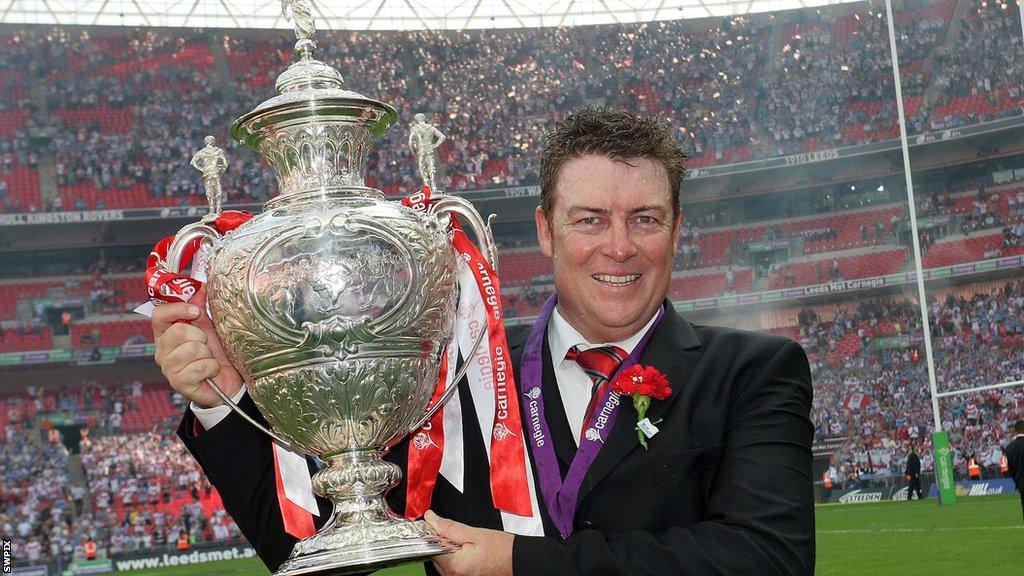Daniel Anderson: Former St Helens coach left paralysed after surfing accident
- Published

Anderson guided Saints to victory over Hull FC in 2008 for their third Challenge Cup in a row
Former St Helens coach Daniel Anderson says he is fortunate to be alive after being left a quadriplegic in a bodysurfing accident in Australia in December.
The 56-year-old went into cardiac arrest after the incident and had to be dragged from the water.
His life was saved by two off-duty paramedics who were on the beach in Central Coast, New South Wales.
"I'm very lucky the paramedics were there," said Australian Anderson.
"I was obviously in a bad way. If they weren't there, who knows how it would have finished up."
Anderson guided Saints to the League Leaders Shield, Super League Grand Final and Challenge Cup treble in 2006. He was named BBC Sports Personality Coach of the Year later that year.
Saints won the Challenge Cup in 2007 and 2008 and the World Club Challenge in 2007, as well reaching the Grand Final in 2007 and 2008.
In his first interview since the accident, Anderson said X-rays showed severe compression of his spinal cord and he was classified as an incomplete quadriplegic.
"Incomplete means that you can get little bits back but some things you never can," he told the Daily Telegraph, external in Australia.
"No-one can tell you categorically what, if any, movement you get back, but after four days I was wiggling my big toe.
"Right now I need assistance with everything - brushing my teeth, feeding, bathing, having a coffee.
"I've got slight movement in my right hand. Three weeks ago I couldn't do that. It's progress."
Anderson made his name in the NRL, where he took New Zealand Warriors to their first Grand Final in 2002, and also coached New Zealand before beginning a three-year spell with Saints in 2005.
Anderson guided the Parramatta Eels to the 2009 NRL Grand Final and later joined the Sydney Roosters as head of recruitment, a role he is continuing during his rehabilitation.
A fundraising initiative has been launched with the help of the NRL and Anderson's former clubs to help him and his family with essential equipment, home modifications and specialist physiotherapy.
"You've got to learn how to use muscles again," he said.
"You've got to learn to try to do the ordinary things in everyday life. Getting in and out of bed or picking up a sandwich. I still can't feed myself but that's one of many goals I've got.
"I want to try to stand. But there's no long-term prognosis. They can't tell where it's going to finish. It's a long road.
"You can't equate this predicament to the pressures of coaching, but the mental strength you've got to have in tough times in football helps.
"This is much tougher. But you've got to grab hold of the situation. You've got to try to move forward and take one challenge at a time."